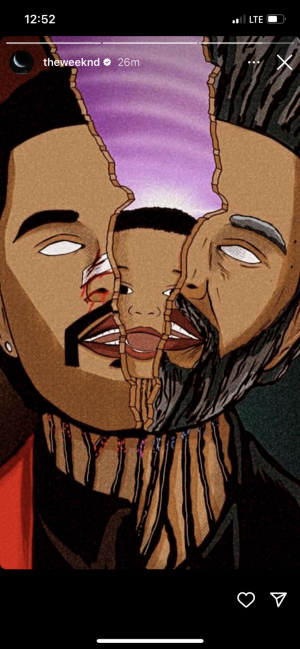http://www.guardian.co.uk/music/2011/dec/29/the-weekndfree-music-model?newsfeed=true
[h1]The Weeknd finds lucrative career path – without ever selling a record[/h1]
Abel Tesfaye gives away his music for free, but has still found overwhelming success. Is this the future of the music industry?
The Weeknd: buzzy, downbeat R&B. Photograph: Clinton Gilders/FilmMagic/Getty Images
Christmas came a few days early for fans of the buzzy, downbeat R&B act The Weeknd, the stage name of Canadian singer Abel Tesfaye: his newest album, Echoes of Silence,
became available for download from his website free of charge on 21 December.
Then again, Christmas also came in August, when The Weeknd released his second album, Thursday, via complimentary download, and before that in March, when trendspotters were able to snatch up his debut, House of Balloons, also gratis. Balloons, with its sensual, druggy soul slow jams, landed on the 2011 top ten lists of a host of publications, including the New York Times, Billboard and the Guardian, and was shortlisted for 2011's Polaris Music Prize. It's been a banner year for The Weeknd – in terms of cachet and critical acclaim – and one that proves that sometimes there is such thing as a free lunch.
The Weeknd's rapid ascendance demonstrates how drastically the approach to disseminate music and building an audience has changed in the first decade of the 21st century. The sea change has been so dramatic that it's easy to forget it was only 10 years ago that Metallica drummer Lars Ulrich was testifying before Congress, explaining the band's decision to sue the game-changing, peer-to-peer file sharing service Napster. "It is clear, then, that if music is free for downloading, the
music industry is not viable," Ulrich testified in July of 2000. "The argument that music should be free must then mean the musicians should work for free. Nobody else works for free. Why should musicians?"
Even then, Ulrich's argument sounded like one that would seem fusty in 10 years, and while no one is arguing that musicians should work for free, The Weeknd's approach is proof that musicians are increasingly accepting the idea that albums, even great ones, are a means to an end. In 2007, Radiohead released In Rainbows via a voluntary donation system in which fans and bandwagon-jumpers alike could download the album for as much or as little as they saw fit. The Weeknd's model is the next step in that evolution. Instead of devaluing the product, offering the music for free has lent it an aura of reverse prestige. It's the album equivalent of a trendy nightclub with no sign outside. Or perhaps a better comparison would be the social media platforms Facebook and Twitter, both of which grew out of the idea that providing a unique, valuable end-user experience should always be the primary focus. Figuring out how to monetize that experience comes later.
The Weeknd has clearly figured out the end-user experience part – so many people rushed to download Echoes of Silence that the server crashed – but he's yet to figure out how to turn the demand he's created into a windfall. Tesfaye is emphatically press-shy (he has yet to grant a major interview and did not respond to a request from the Guardian) and has played so few shows you could count them on two hands and still have enough fingers left over to eat with chopsticks. In an interview with Billboard, music executive Marc Geiger claimed The Weeknd was flooded with offers from labels within the week of the Balloons release, as well as a $25,000 offer to play one show. The Weeknd has placed himself in the precarious position of having to figure out how to sell his cachet without forfeiting it, but there does appear to be a path to a lucrative music career without ever selling a record.
If 2011 was the year of The Weeknd, 2012 could be the year of the Weeknd model. At the end of the summer, singer-songwriter-producer The-Dream released 1977, a full-length, free download album under his birth name Terius Nash. Kanye West offered up free tracks in the build-up to the release of My Beautiful Dark Twisted Fantasy, as did Drake, to drum up anticipation for Take Care. (Not incidentally, Drake, a fellow Canadian, was one of The Weeknd's earliest co-signers, and collaborated with him on four of Take Care's tracks.)
By now it's been demonstrated that offering up free music isn't just a marketing ploy for an already massive artist or a way to say thank you to fans. When executed correctly, giving music – even entire albums – away free is a way to build a savvy, pacesetting audience from the ground up, an audience that will spread the gospel via social networking platforms. In other words, everybody's working for The Weeknd, and when Tesfaye decides to shed his reclusive ways (or heaven forbid, charge for his music) he could be sitting on a new-media goldmine. Not unlike Mark Zuckerberg, but with better pipes.









































